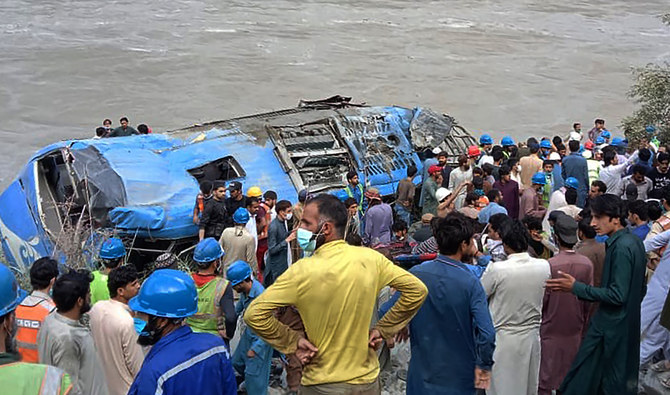ISLAMABAD: Pakistan and China have agreed to complete investigations into a bus blast that killed 13 people in northwestern Pakistan in mid-July "as soon as possible."
It follows a meeting between Pakistan’s Interior Minister Sheikh Rashid Ahmed and Chinese Ambassador in Pakistan Nong Rong in Islamabad on Sunday.
“Both discussed matters related to probe into Dasu bus incident and agreed to complete the investigation as soon as possible,” Sheikh Rashid’s office said in a statement.
Nine Chinese nationals, employed to work on the project in Dasu, were among those killed when the bus carrying them to the construction site came under attack.
The project is part of the China-Pakistan Economic Corridor (CPEC), a $65 billion investment plan aiming to link western China to the southern Pakistani port of Gwadar.
Beijing had initially called it a bomb attack but backed away from the assertion after Pakistan stated it was an accident. Later Beijing said it would send a team to help investigate the matter jointly with Pakistan.
A team of 15 Chinese investigators visited Pakistan the same week and, accompanied by Pakistani officials, began investigations into the incident.
The attack led to speculation on social media that China had canceled its contract to build the Dasu project.
However, Pakistan’s foreign ministry spokesperson, Zahid Hafeez Chaudhri, said that construction of the Dasu Hydropower Project would resume “soon,” reiterating that Pakistan and China were committed to the timely completion of all projects being built in Pakistan with Chinese cooperation.
On Sunday, Sheikh Ahmed assured the Chinese ambassador that Pakistan would provide “foolproof security” to Chinese nationals employed in CPEC projects.
“We will not let CPEC be sabotaged by any foreign conspiracy,” the minister said, adding that no power can "create hurdles in the way of Pakistan-China friendship."
Ambassador Rong, for his part, said that several Chinese companies were operating their businesses in Pakistan and “we thank Pakistani government for the facilities it has been extending to Chinese workers,” the statement read.
















